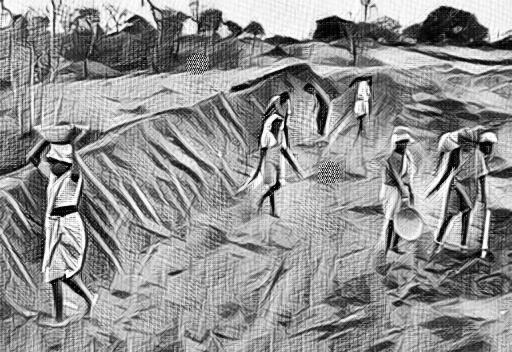I am fortunate for having had several opportunities in my life to have vast experience of working with rural communities. That involved travelling across India including some of the remotest areas. Directly or indirectly my work was related to the sustainability of rural livelihoods.
This work made me understand how people in villages are connected to natural resources and making a living. The resources sustainability is critical for the existence of people for their livelihoods. In contrast, the urban areas are existing and thriving at the cost of the degradation of the rural regions and their environments.
Achieving sustainable rural livelihoods is one of the most significant challenges of the 21st Century. The Sustainable Development Goals has prime relevance to the rural development issues in developing countries. A multi-pronged approach is needed for achieving sustainability of the rural areas.
Several rural development programs are being implemented through funding from Government, Non-government, National and International agencies. There is a paradigm shift in rural development approaches, i.e., adaptive rural livelihoods strategies are evolved and are being practised.
There is a progressive change brought in the watershed projects being implemented especially in the semi-arid and arid areas. Earlier water used to be the single major factor around which livelihoods were perceived. Now the latest thinking evolved is i.e., watersheds is an Approach to ultimately address the livelihoods’. Similarly, every activity conceived as a project or activity is an approach to address the sustainable livelihoods which is an ultimate programme.
It is proved that during the drought and especially in the context of climate change, the Natural Resources related livelihoods are not sustainable and often could not prevent migrations. And also in the post-watershed project scenario, the livelihood options and opportunities of most vulnerable people were at stake.
The adaptive Livelihood strategies include a) Diversification – Each family and individual needs to be capable to adopt more than one livelihood; b) Adopting the secondary and tertiary sector livelihoods and c) Non-natural resource related livelihoods could be adopted.
The prevailing insecure rural livelihoods cannot ensure protection and rejuvenation of environment and natural resources. Promotion of sustainable rural livelihoods has to invariably ensure a better quality of resource structure. Budget allocations and piecemeal interventions are no substitute for eco-friendly sustainable rural livelihoods strategy.
The successive governments are failing to address the rural livelihoods. Villages have become some sort of museums and the governments are trying to preserve their very existence. Therefore many schemes and freebies are designed to support the rural livelihoods. Food for Work; Minimum employment guarantee scheme; Cash for work, pension schemes, insurance schemes and loan waiver etc. are being implemented. The universal basic income scheme is also being explored for implementation. Several quasi-universal basic income schemes are already being experimented too.
The rural areas are considered cheap and less worthy, the urban dominance has belittled the existence of rural areas. The virtual wealth in the form of money can buy and erase the rural areas and its cohesive structure. With the price of one multi-story apartment in an urban area, one could buy a complete village. The GDP contribution of the villages to the national economy is undervalued. Therefore the sustainability of rural livelihoods is a big question. With more than 50% population in the urban areas globally, the focus is shifting towards urban areas. The very basis of civilisations which depended on the prosperity of rural areas is no more relevant with the paradigm shift of urban areas based economies.

During the drought or lean period, people are provided works such as desilting of the tanks - a village in Mahabubnagar District




